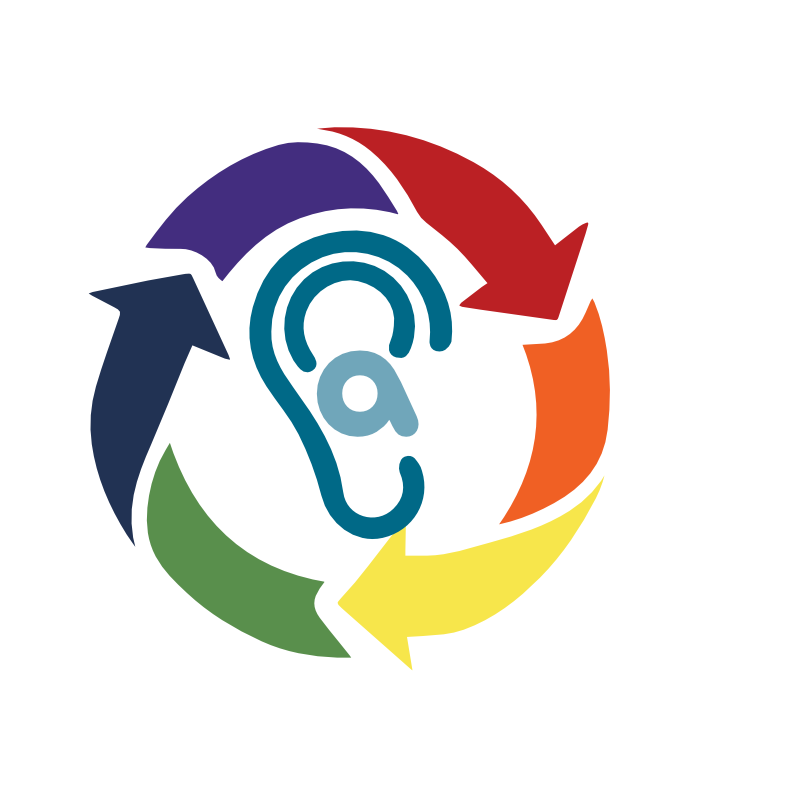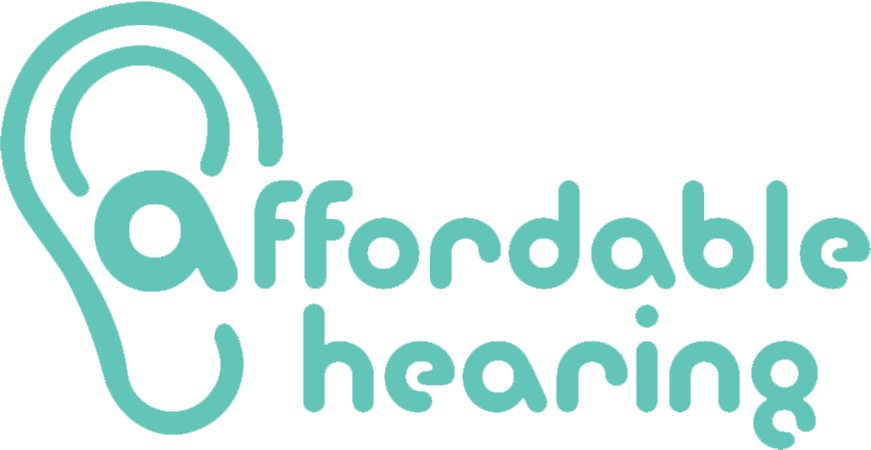Three jokes and a Christmas jumper.
Three jokes and a Christmas jumper.
Three jokes and a Christmas jumper! Christmas is all about connection—laughing with loved ones, sharing stories, and enjoying the warmth of being together. But for those with hearing loss, it can feel like they’re missing out on the magic. Conversations around the dinner table during festive gatherings can be overwhelming, voices blur together, and background music drowns out words. It’s frustrating and isolating, even during the happiest time of year. At least there’s always the cracker jokes….ah, about those!
Let's get the turkey and drums out of the way early!
So what’s more likely to leave you feeling on the sidelines this Christmas: bad jokes, bad jumpers, or hearing loss? Let’s face it, bad jokes are part of the package. Let’s try some:
- “Why did the turkey join the band? Because it had the drumsticks!” or
- “What’s Santa’s favourite type of music? Wrap!”They’re groan-worthy, aren’t they – sorry!!


What about the jumpers?
Three jokes and a Christmas jumper. Then there are the bad jumpers, with flashing lights and 3D reindeer noses that make you question your life choices. But hearing loss? That’s a tougher nut to crack (pun intended). Struggling to catch punchlines like, “What do elves learn in school? The elf-abet!” can make anyone feel left out. Although we accept it is arguable if missing that one might not be a hidden benefit of hearing loss this Christmas? So this year, let’s laugh at the jumpers, endure the jokes, and make a little extra effort to include everyone in the festive fun! It’s not all about hearing aids (mostly, obviously!!). There are other small ways you can help those around you stay in the Christmas mix (more on those in a min!).
Why Affordable Hearing?
Affordability, Sustainbility, Responsibility?
Christmas is all about connection—sharing laughter, love, and special moments with those who matter most. But for many, hearing loss can put a barrier between them and the joy of the season. Meaning missing out on the sounds of festive chatter, favourite carols, and heartfelt conversations. It’s easy to quickly feel left out. We think it is so important, which is why we focus is to make affordable, sustainable hearing aids available to as many people as possible. Hearing aids are, in most cases, the answer. However, there are lots of other small things (hearing aids are small too!!) you can do to help those around you feel included, despite their hearing loss, this Christmas.
Plus, choosing refurbished hearing aids doesn’t just help your wallet—it’s an eco-friendly way to make a difference. This Christmas, let’s try and give everyone the gift of connection and make the season truly meaningful by hearing every word, laugh, and song. These are some of the (unavoidable Christmas) situations most likely to cause difficulties to those with reduced hearing and how we can all help to reduce the impact of them:

Minimise interrupting

Christmas is often a time of lively chatter, with multiple conversations happening at once. For someone with hearing loss, keeping up can feel like trying to tune in to a radio station full of static. Background noise—like music, clinking dishes, and laughter—makes it even harder to follow what’s being said. Add two or three simultaneous conversations and you have the perfect recipe for social isolation!
Seeing and hearing the kids?

Children’s excited chatter or older relatives speaking softly can be especially difficult to hear. Hearing loss often affects the ability to pick up higher-pitched tones, meaning those heartfelt moments with kids or whispered stories from grandparents might pass by unheard. These missed exchanges can lead to feelings of frustration or sadness during a time meant for joy.
Be aware of background noise

Large gatherings in busy settings amplify the challenges. Echoing rooms, overlapping sounds, and festive chaos make focusing on any one voice almost impossible. Instead of enjoying the moment, you might find yourself smiling and nodding, unsure of what’s being said. Sometimes a moment in a quiet room can help you recharge for the next round of trying to decipher conversation.
Does a little bit of hearing loss really matter? - Yes, it does!

It is easy to think that it’s not really that important if someone can’t hear a little bit, misses a few little snippets here and there. That they’ll probably get enough of the gist of the toings and froings and just feel happy to be in the festive mellée. They may very well appear happy and think they are but it is actually very dangerous for future cerebral health. Not only will hearing loss make you feel lost and exhausted we now know it dramatically increases the risk of developing dementia.
Makes you feel lost:
Christmas is full of sounds—laughter, carols, and heartfelt conversations—but hearing loss can make these moments feel distant. Missing words or entire conversations can leave you feeling disconnected and out of the loop. Instead of enjoying the festivities, you may feel lost, unable to engage fully with those around you.
You end up zoning out
Struggling to keep up with conversations can make them feel like hard work instead of fun. When you’re only catching fragments or constantly guessing what people are saying, it’s easy to lose interest. Eventually, you may find yourself zoning out entirely, feeling more like an observer than an active participant in the holiday cheer.
It's embarassing
Not being able to follow conversations can be frustrating and even embarrassing. To avoid awkwardness or drawing attention, you might pretend to be busy—tidying up or checking your phone. While it’s a way to cope, it can also deepen the sense of isolation during a time meant for togetherness.
Hearing loss can leave you exhausted!
Does just the thought of Christmas leave you feeling more exhausted than Father Christmas on Boxing Day? Any of this sound familiar?

Stressed just thinking about it?
Hearing loss brings its own kind of pre-holiday stress. Before you even step out the door, you’re already worrying: “What if I can’t hear what’s being said?” or “Will I miss out again?” The anxiety of not being able to follow conversations can make attending gatherings feel more like a challenge than a celebration.
Yikes, the effort of trying to keep up?
Once you’re there, the energy required to keep up with conversations is draining. Concentrating on lip-reading, filling in the gaps, and straining to hear every word takes enormous willpower. Instead of enjoying the moment, you’re constantly working to decode the noise, leaving you mentally and physically exhausted by the end.
Just too much, exhausting, no choice but to give up?
Eventually, the frustration and fatigue take over. You might find yourself giving up—nodding along without understanding or withdrawing entirely. This sad resignation, admitting defeat in social connection, can be the hardest part, leaving you feeling isolated and drained during a time meant for joy and togetherness.

Permanent hearing loss and dementia - sorry!
Sorry but now comes the really serious bit. When I sat down to talk about the risks of social isolation for our loved ones, with hearing loss at Christmas time, it was meant to be cheesey jokes, silly pullies and maybe a quip or two about ‘selective hearing’ (around the time that washing up volunteers are needed?). However, it really is quite difficult to be too flippant about something that can cause so much distress. I’m afraid this is the gloomiest bit. Promise, at least once this bit is out of the way there’s no more doom!
Here follows a brief but informative description of why we must screen ourselves and those we care about for hearing loss, being prepared to act if necessary.
Stage 1: Brain compensates relying on other stimuli
When hearing loss begins, the brain works hard to compensate, diverting focus to visual cues, lip-reading, and contextual guessing to fill in the gaps. While this helps in the short term, it places a significant cognitive load on the brain. This effortful workaround creates habits that can undermine the use of hearing aids later.
Stage 2: Brain pathways become permanently diverted
Over time, the brain adapts to this diversion of resources, gradually deprioritizing the pathways for auditory input. This can lead to a more permanent “switching off” of those neural connections, making it harder to process sound even when hearing aids are introduced. The longer this goes on, the harder it becomes to re-engage these pathways.
Dementia risk rises dramatically
This neural shift isn’t just inconvenient—it’s dangerous. Studies show that hearing loss-related changes in brain activity significantly increase the risk of cognitive decline and dementia. Addressing hearing loss early, before these changes become entrenched, is critical to maintaining long-term brain health and overall quality of life.
Don’t suffer the silence of hearing loss, in silence—there’s a solution. Hearing is about connection, and everyone deserves access to it. That’s why we founded Affordable Hearing, a movement created by good people doing good things. Sustainable, refurbished hearing aids are made available at prices that don’t break the bank, bringing quality hearing within reach for everyone.


It doesn’t stop there. These efforts also support large-scale global initiatives to distribute free hearing aids where they’re most needed, helping communities around the world reconnect with the sounds of life. It’s about more than affordability—it’s about fairness, sustainability, and making a real impact. So, take the step to reclaim your hearing and be part of a movement that values access, inclusion, and the power of sound for all.

So what can we do?
That’s why it’s important to be mindful—speak clearly, face each other, and maybe turn the music down a notch. A little effort goes a long way in making sure everyone feels included this season.
Don’t let hearing loss lead to social isolation—take the first step toward reconnecting today. Affordable Hearing offers sustainable, refurbished hearing aids at prices you can afford. Rediscover the joy of conversations and connection.
We really want you to experience every precious moment this Christmas. Not just the comedy jumper present, the present moments too as life presents them. Every moment only happens once, don’t miss any more of them. Please do get in touch with us in all the usual ways.
Phone: 0330 230 3333
Mail: info@affordable-hearing.co.uk
Meet: Here


